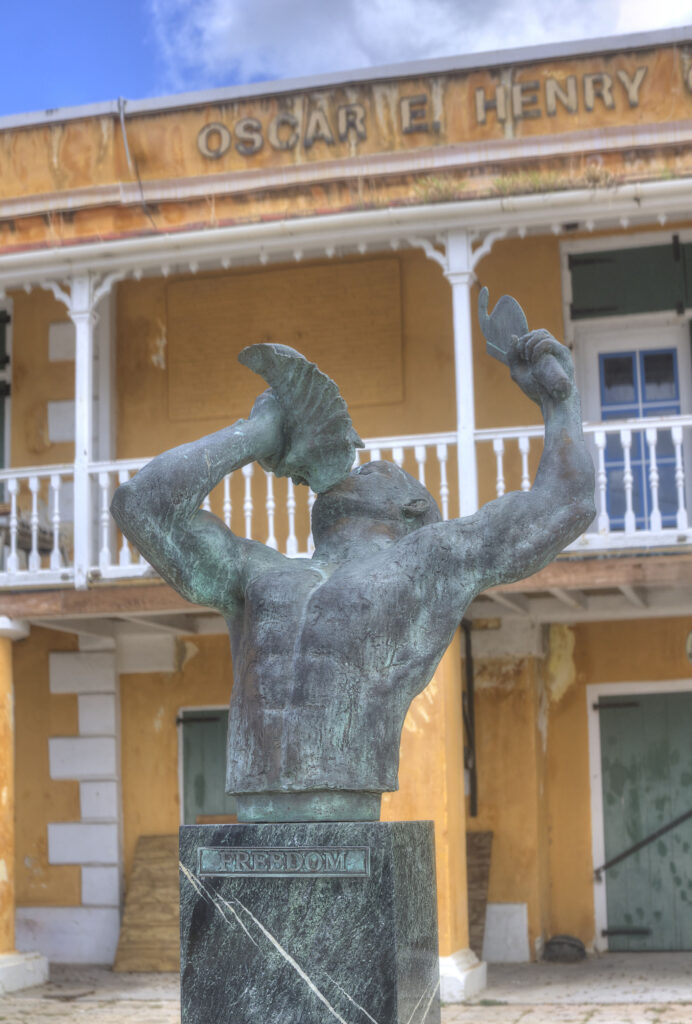General Buddhoe
A Hero of Emancipation in the Danish West Indies

General Buddhoe, born Moses Gottlieb and recorded as John Guttliff Bordeaux, stands as one of the most celebrated figures in the history of the Danish West Indies (now the U.S. Virgin Islands). His pivotal role in the 1848 emancipation of enslaved people on St. Croix cemented his legacy as a symbol of resilience, justice, and freedom.
Although little is known about Buddhoe’s early life, he was believed to have been born enslaved on St. Croix. By the mid-19th century, he was working as a skilled sugar boiler at the La Grange Plantation near Frederiksted. As a sugar boiler, Buddhoe oversaw the critical final stages of sugar production—a highly skilled role requiring precision and expertise to ensure the sugarcane juice was properly reduced for crystallization. The respect he commanded among his peers earned him the honorary title of “General,” recognizing his leadership and strategic thinking.
Buddhoe’s position as a sugar boiler likely afforded him a unique perspective on plantation operations and the systemic oppression of enslaved workers. His trusted role allowed him mobility and influence, giving him the opportunity to interact with laborers across plantations and organize them in a unified push for freedom.
The 1848 Emancipation Revolt
General Buddhoe is best remembered for his leadership in organizing the successful revolt that led to the abolition of slavery in the Danish West Indies. By the 1840s, enslaved Africans and their descendants on St. Croix endured harsh conditions despite repeated promises of reform. The urgency for freedom grew until it could no longer be suppressed.
On the night of July 2, 1848, Buddhoe, alongside his co-conspirator Admiral Martin King, led a carefully coordinated uprising. They rallied thousands of enslaved workers from plantations across the island to march on Frederiksted, demanding their freedom. The movement was largely peaceful, a reflection of Buddhoe’s discipline and insistence on nonviolence.
By morning, thousands of enslaved individuals had gathered in Frederiksted, surrounding Fort Frederik. Their overwhelming numbers forced Danish Governor Peter von Scholten to act. On July 3, 1848, von Scholten declared the emancipation of all enslaved people in the Danish West Indies, effectively ending slavery. This historic day marked a turning point not only for St. Croix but for the Caribbean as a whole.
Exile and Legacy
Despite his instrumental role in securing emancipation, General Buddhoe paid a heavy price. Uneasy about his growing influence, Danish authorities arrested him shortly after the rebellion. He was exiled from St. Croix and sent to Trinidad, where he spent the remainder of his life in relative obscurity.
A Lasting Reminder of Freedom
Though he lived his final years away from the land he helped liberate, Buddhoe’s legacy endures as a powerful symbol of the fight for freedom and justice. His leadership on that pivotal day in 1848 remains a cornerstone of Virgin Islands history and is celebrated to this day, particularly in Frederiksted, the heart of the emancipation movement.
General Buddhoe’s story serves as a timeless reminder of the universal struggle for freedom and equality. His vision, unwavering commitment to peaceful resistance, and ability to inspire thousands exemplify the power of collective action against oppression.
Every July 3rd, the people of the U.S. Virgin Islands celebrate Emancipation Day, remembering Buddhoe’s leadership and the courage of those who marched for their freedom.